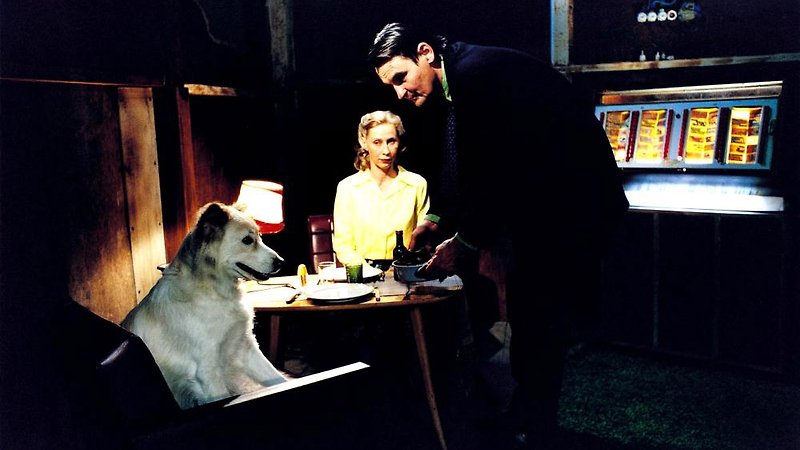
A low-life comedy-drama guaranteed to leave the viewer feeling high.
Screened as part of NZIFF 2002
The Man Without a Past 2002
Mies vailla menneisyytta
"A low-life comedy-drama guaranteed to leave the viewer feeling high, the latest from Finnish director Aki Kaurismäki has all of his distinctive features: poker-faced humour, stripped-down and highly composed visuals, and a humanist romantic sensibility. All combine to make The Man Without a Past possibly the most purely pleasurable experience to run in Competition this year at Cannes… The titular hero, listed in the credits only as M, is a solemn leather-jacketed man who arrives in Helsinki by train, sits down on a bench at night, and promptly gets beaten to within an inch of his life by three thugs: a startling and exceedingly rare burst of violence in a Kaurismäki film. He is taken to hospital and bandaged up, mummy-style, but soon flatlines and is declared dead. Almost immediately, however, he jolts back to life… Unable to remember his identity, he is taken in and nursed by a friendly couple who live in a community of down-and-outs making makeshift homes for themselves in old freight containers... He doggedly builds himself a new life, with inspiration from Salvation Army officer Irma, for whom he sparks a chaste mutual passion. His new life takes a new turn when he decides to turn the Sally Army band into a passable rock-and-tango combo. The road to a happy conclusion only briefly detours when he is involved in what must be the most no-nonsense bank heist in cinema history, a drily farcical sequence executed with Kaurismäki’s typical economy.
The film is perhaps Kaurismäki’s most concerted attempt to mix cinematic borrowings into something fresh. The film, with its amnesia story, is essentially a 1950s American B-movie melodrama with allusions to Depression-era cinema, visual echoes of Vigo’s L’Atalante in the dockside scenes, and a big splash of Jean Renoir’s community spirit. Jokey and feather-light as the film might seem at first glance, it turns out to be surprisingly deep and serious. Kaurismäki’s social concern is absolutely for real, with his empathy for the socially excluded (many of the extras appear to be genuine homeless people) and his critique of a callous economic system… The director’s absolutely individual, finely balanced tone, pitched somewhere between Bresson and Buster Keaton, is beautifully carried off by the cast. Kaurismäki’s regular female lead Kati Outinen gives a wonderfully pinched evocation of repressed passion, and the flawlessly impassive but simpatico Markku Peltola, with his bulky movements and overcast leathery features, is surely Finland’s own Robert Mitchum." — Jonathan Romney, Screen Daily